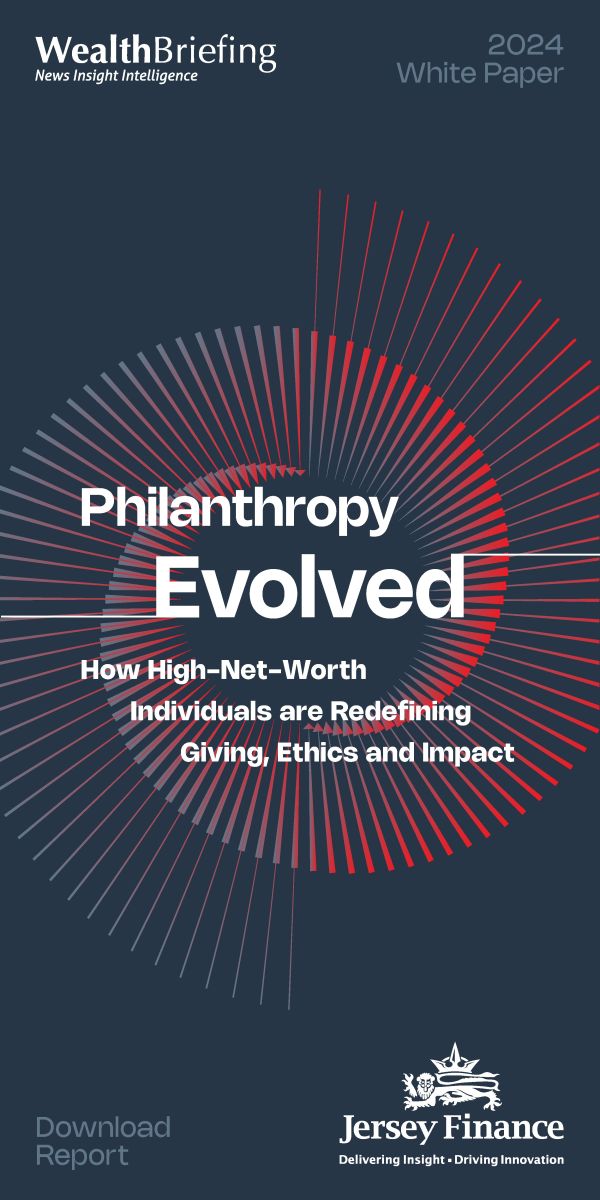Philanthropy
New Report On Philanthropy, Ethical Investment

The state of HNW philanthropy throughout the world today – WealthBriefing's ground-breaking report is now available.
In conjunction with Jersey Finance, WealthBriefing has published a rare, comprehensive report on the spectrum that exists between ethical investments and out-and-out philanthropy among the affluent worldwide.
Although philanthropy is a vital subject for wealth managers to consider, the subject has always been a poorly-researched one and remains so to this day. Every major report that appears is therefore important and this one – which draws from extensive research of the available literature and in-depth interviews with wealth managers and charitable executives alike – presents the reader with a comprehensive briefing. (To download the form, click here.)
Readers will learn about the following:
-- The future of HNW philanthropy.
-- Concrete examples of HNWs influencing world trends with their
philanthropy in the present day and in the past.
-- An impressive uptick in the involvement of female HNWs in
philanthropy.
-- The rapid growth of cross-border giving.
-- An increasing collaboration between HNWs in their
philanthropic endeavours.
-- A growing emphasis on smaller charities and programmes –
except in the field of medicine.
-- HNWs' ever-present, ever-growing enthusiasm for ESG
(environmental, social and governance-related) projects.
-- The interplay between the different generations in
affluent families (boomers, millennials, Gen Z etc) in
philanthropy.
-- The part that family offices play in charity.
-- Ethnic backgrounds among HNWs as an influence on
charitable habits.
-- Differences – but also increasing similarities – between
HNWs' business habits and charitable impulses. The report
contains a running discussion about this, looking at impact
investing, impact reports, a new obsession with dissociation from
dubious people and businesses, blended finance and patient
capital.
-- Secrecy among HNWs and family offices about their
charitable projects.
-- Tax-related considerations.
-- The central position of trusts, donor-advised funds, Jersey
foundations and other structures in the charitable sector.
-- The job of a charitable trust's protector.
-- Family constitutions.
-- A growing desire to tackle the root causes of social ills
rather than the symptoms.
-- Systems-change-level work on the part of charities and
family offices.
International financial centres, led by Jersey and the Bahamas, are now allowing trusts to appoint corporations as protectors. Because a corporation will always survive any trusted human protector in whom the founder might have faith, this arrangement ensures continuity of purpose and protects the trust from being 'colonised' by family members who might have their own agenda.
The report contains a negative but important revelation: artificial intelligence has yet to make its mark on the sector. When it does, it is expected to be useful in scanning applications for charity from needy organisations and shortlisting the ones that seem the most promising.
All the most urgent and controversial ideas that wealth managers
are discussing on the subject of philanthropy are contained in
this magnum opus. It is essential reading.